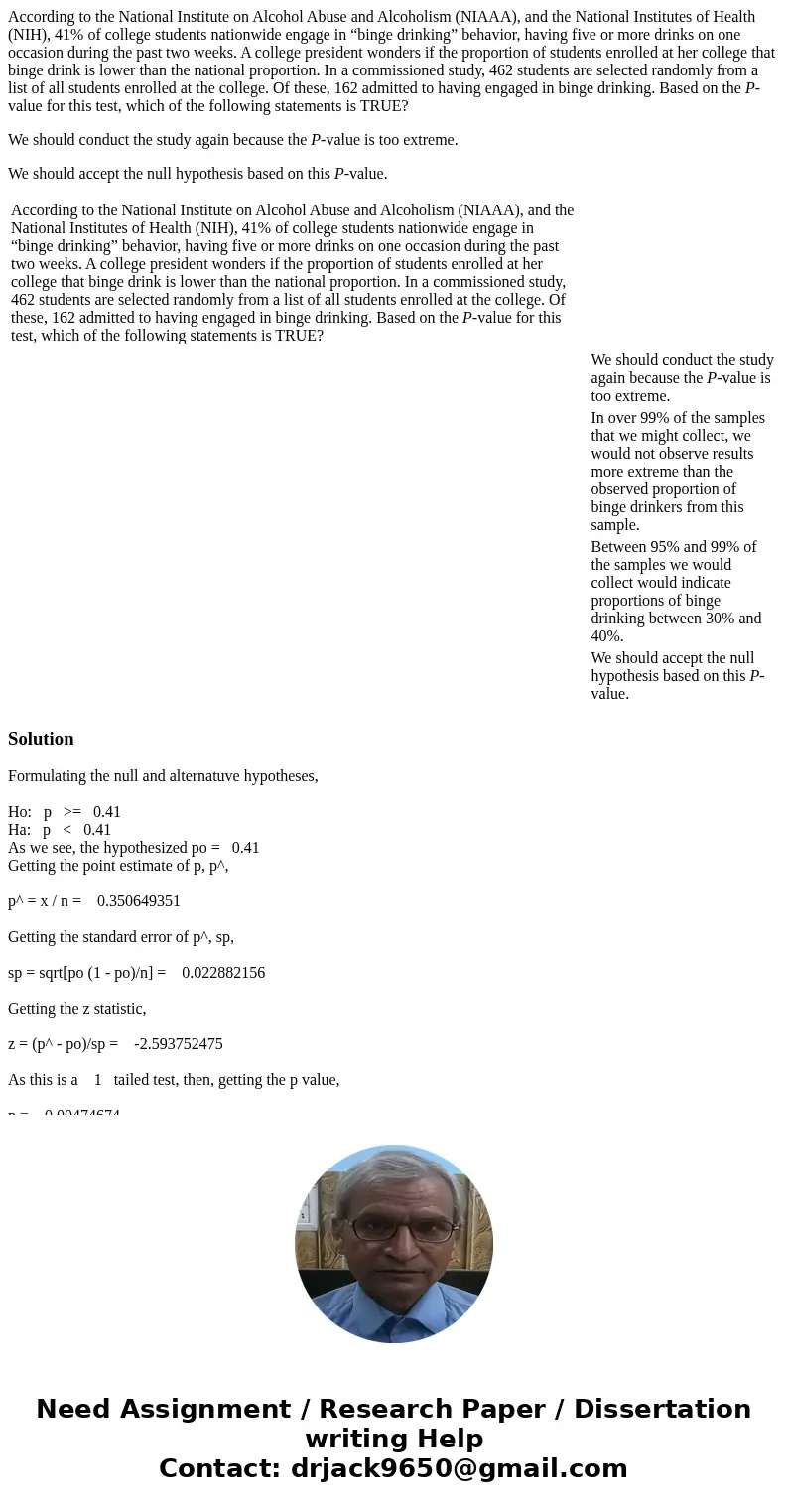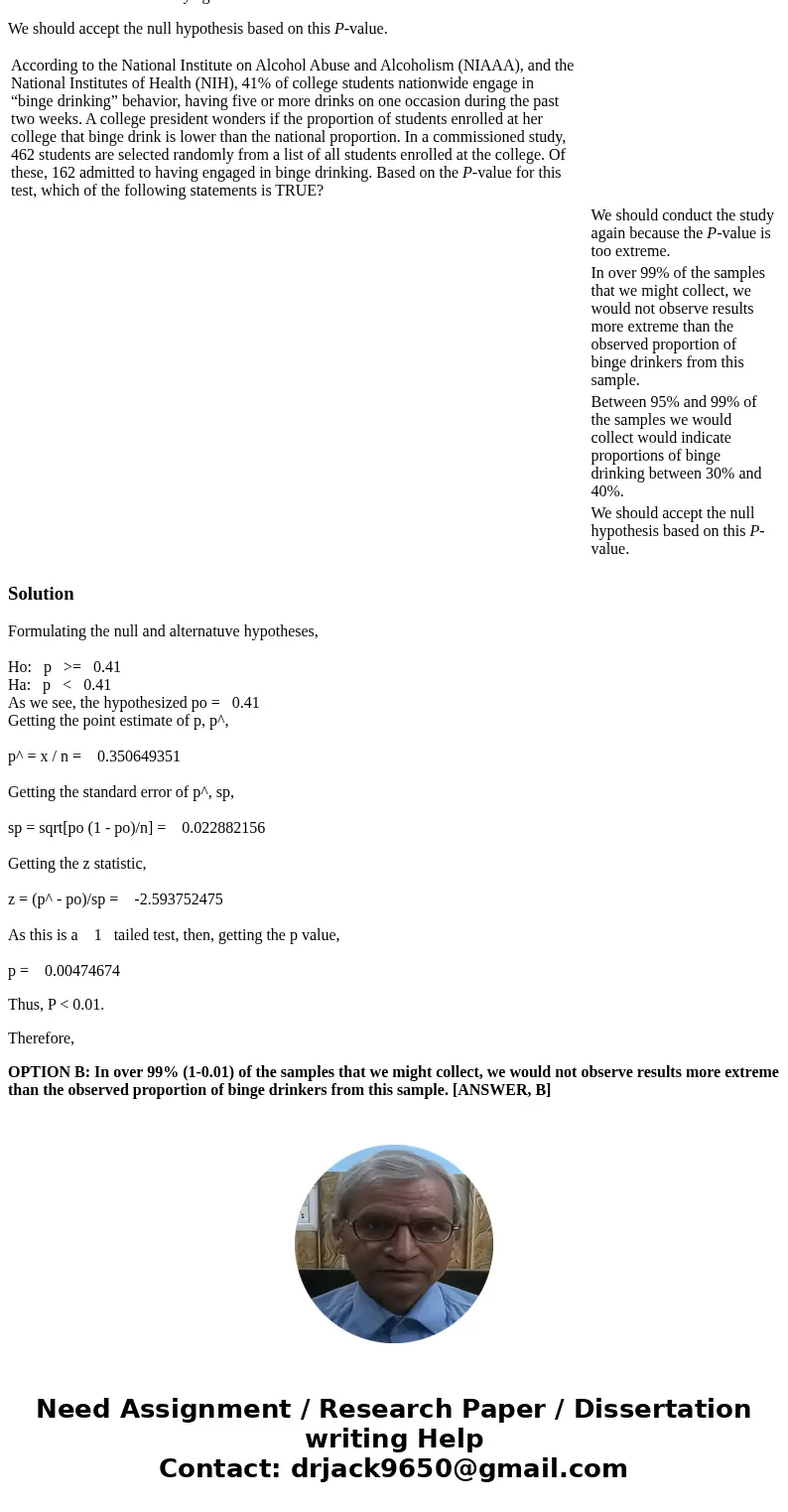According to the National Institute on Alcohol Abuse and Alc
According to the National Institute on Alcohol Abuse and Alcoholism (NIAAA), and the National Institutes of Health (NIH), 41% of college students nationwide engage in “binge drinking” behavior, having five or more drinks on one occasion during the past two weeks. A college president wonders if the proportion of students enrolled at her college that binge drink is lower than the national proportion. In a commissioned study, 462 students are selected randomly from a list of all students enrolled at the college. Of these, 162 admitted to having engaged in binge drinking. Based on the P-value for this test, which of the following statements is TRUE?
We should conduct the study again because the P-value is too extreme.
We should accept the null hypothesis based on this P-value.
| According to the National Institute on Alcohol Abuse and Alcoholism (NIAAA), and the National Institutes of Health (NIH), 41% of college students nationwide engage in “binge drinking” behavior, having five or more drinks on one occasion during the past two weeks. A college president wonders if the proportion of students enrolled at her college that binge drink is lower than the national proportion. In a commissioned study, 462 students are selected randomly from a list of all students enrolled at the college. Of these, 162 admitted to having engaged in binge drinking. Based on the P-value for this test, which of the following statements is TRUE? | |||||||||
|
Solution
Formulating the null and alternatuve hypotheses,
Ho: p >= 0.41
Ha: p < 0.41
As we see, the hypothesized po = 0.41
Getting the point estimate of p, p^,
p^ = x / n = 0.350649351
Getting the standard error of p^, sp,
sp = sqrt[po (1 - po)/n] = 0.022882156
Getting the z statistic,
z = (p^ - po)/sp = -2.593752475
As this is a 1 tailed test, then, getting the p value,
p = 0.00474674
Thus, P < 0.01.
Therefore,
OPTION B: In over 99% (1-0.01) of the samples that we might collect, we would not observe results more extreme than the observed proportion of binge drinkers from this sample. [ANSWER, B]


 Homework Sourse
Homework Sourse